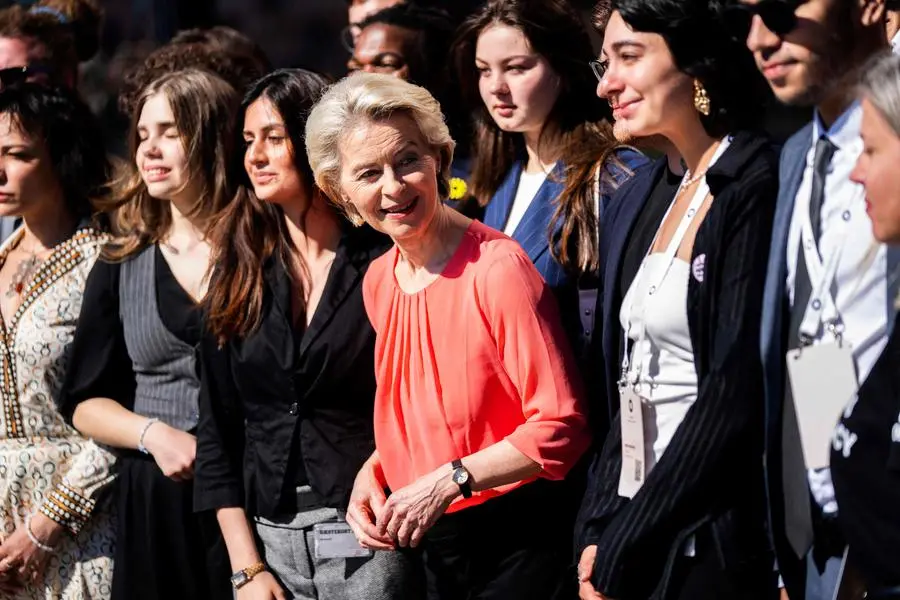PHOTO
Ursula von der Leyen and rivals vying to command the next European Commission argued over Ukraine, Gaza, the economy and other issues pressing on the European Union in a debate Thursday that was snubbed by far-right candidates.
Von der Leyen, seeking a second mandate as commission chief, was put on the spot repeatedly about her apparent willingness to ally with the far right after the June 6-9 European Parliament elections.
She said she will "will see" what groups and blocs emerge and emphasised that any collaboration would only be with pro-European lawmakers.
The conservative German politician also said any alliance would not extend to groups.
Later, she said on X that she considered the hard-right parties in Germany, including the AfD, France's National Rally and Poland's Konfederacja to be "(Russian President Vladimir) Putin's puppets and proxies" that "are trampling on our values".
In the debate, von der Leyen was upbraided by left-wing rival Walter Baier, who asked: "When will the European Union put sanctions on Israel to stop the murder in Gaza?"
She acknowledged that "the situation in Gaza is catastrophic" but stressed Hamas triggered the war with its October 7 attack on Israel.
While the EU has maintained and even increased humanitarian aid to Gaza, "I was always clear also with the government in Israel that Israel has the right to defend itself," she said.
With the number of European countries recognising a Palestinian state about to swell, she reiterated that it was the EU's duty to work for a two-state solution" but did not commit Brussels to follow suit.
- Far-right absent -
The debate, organised and televised by the European Broadcasting Union (EBU), a non-EU body comprising broadcasters in 56 countries, fielded four candidates against von der Leyen.
They were left-leaning Nicolas Schmit, Walter Baier and Terry Reintke and centrist Sandro Gozi.
Reintke, of the Greens political group, warned that an alliance between von der Leyen's European People's Party and the far right would roll back progress on the EU's green transition.
She also said the EU needs a strategy to deal with the far right, which she called a security threat, given links some extreme-right parties have had with Putin.
On Ukraine, which is fighting off a Russian invasion ordered by Putin, von der Leyen said Europe needed to maintain military supplies to Kyiv and bolster its own defence capabilities, notably by building an "air defence shield".
"First and foremost, we have to stand by Ukraine.... Ukraine is fighting for our values and all free nations," she said.
The EBU had also sent invitations to the two main extreme-right groupings in the European Parliament, the European Conservatives and Reformists (ECR) and the Identity and Democracy (ID) groups.
But they did not take part.
EBU explained that it was because participation was limited to politicians who were put forward by groups as their designated lead candidates for the European Commission.
The ECR and ID refuse to do so.
As the debate was happening, the ID group announced the expulsion of AfD from its ranks, after a series of scandals involving the German party's leading lawmaker Maximilian Krah.





















